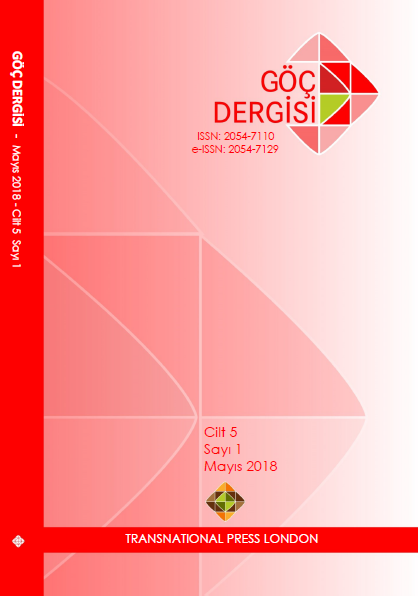Çatışma ve Göç Kültürü Modeli Bağlamında Göç Romanı Okuması: Yüksel Pazarkaya’nın Savrulanlar’ı
Analysis of Yüksel Pazarkaya’s Novel Titled Savrulanlar in the Context of Conflict Model of Migration and Cultures of Human Mobility
Author(s): Ali Tilbe, Kamil CivelekSubject(s): German Literature, Turkish Literature, Migration Studies
Published by: Transnational Press London
Keywords: Yüksel Pazarkaya; migration; immigrant; mover; literature; culture of migration; conflict model; human mobility; acculturation;
Summary/Abstract: In general terms, the migration phenomenon can be described as human mobility which occurs for the purpose to settle at a different location from the permanent one due to economic, social, political or cultural reasons. Transnational migration of Turks through Germany, which has started in sixties and has been perpetuated mutually and obtained a cultural characteristic, is one of the most appropriate types of mobility that fits this description. In this presentation, we aim to examine Savrulanlar, which is written by Yüksel Pazarkaya, a contemporary Turk-German author, by employing the approach of migration literature examination methodology that we have developed on the basis of İbrahim Sirkeci and Jeffrey H. Cohen’s Conflict Model of Migration and Cultures of Human Mobility. The novel portrays the struggle of people who try to gain a new identity and their endeavour for cultural and social adaptation, along with the friendship of two army friends who met on train in abroad after many years, as well as their family stories conspicuously.
Journal: Göç Dergisi (GD)
- Issue Year: 5/2018
- Issue No: 1
- Page Range: 77-106
- Page Count: 30
- Language: Turkish

